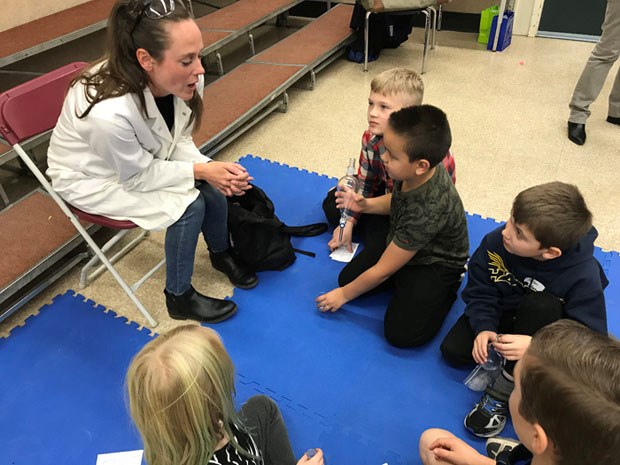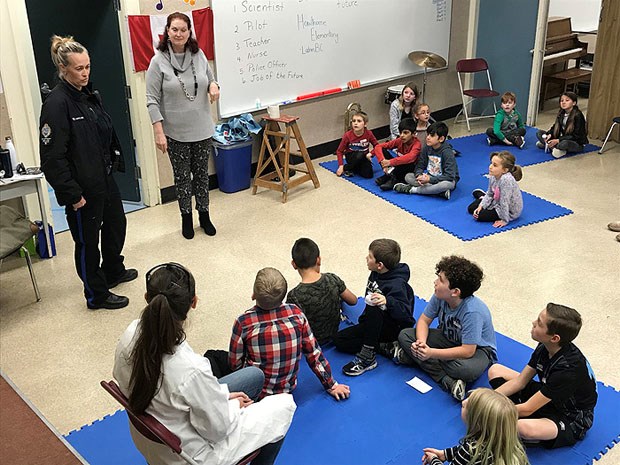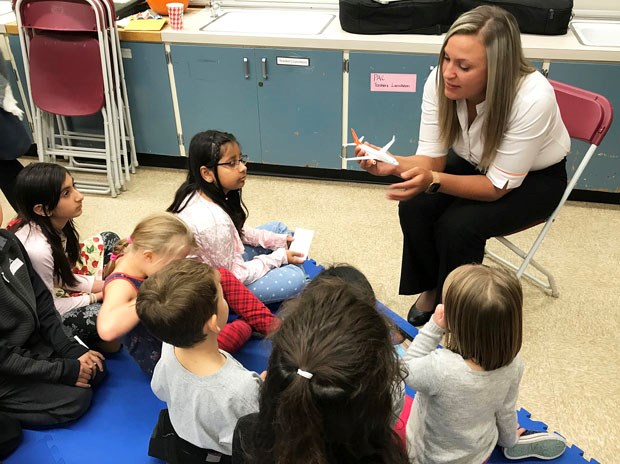Pilots and firefighters don’t have to be men, nor do kindergarten teachers and nurses have to be women.
That was the message delivered to students in grades 1 to 4 at Hawthorne Elementary last Thursday in a program called Primary Futures: Drawing Our Futures.
The aim is to broaden horizons of primary children, reduce gender stereotypes and help youngsters make links between their lessons and their futures. All that can have a positive impact on their educational attainment, according to the program run by the British charity Education and Employers, in partnership with the National Association of Head Teachers.
Nick Chambers, lead researcher with the initiative, has travelled the world to share his research, which revealed children establish career gender stereotypes very early on, by the age of seven in many cases, and if exposed to real people in the workforce are more readily able to change their views.

He visited the Ladner school where the students had drawn pictures of what they thought their futures could hold. Some anticipated patterns developed as girls chose jobs such as teachers and moms while boys chose occupations such as emergency services and pro athletes, according to the Hawthorne teachers who participated in the exercise.
The following week members of the workforce, including a male nurse, female scientist, female police officer, female pilot and male kindergarten teacher, talked to the students and answered questions about the careers that are quite clearly open to both genders.
“We’re trying to bring learning to life. We’re showing how what they’re learning in school is all highly relevant, whether it’s science or history, and by meeting adults who use those for their job, it makes learning even fun,” Chambers told the Optimist.
He said adults should not be providing career advice in primary schools but instead focus on broadening horizons and raising aspirations to give children a wide range of experiences.
“There are a range of attributes, skills and behaviours that can be encouraged in this early stage of a child’s life that will leave them in the best possible position as they begin their transitions to secondary education and to future life,” Chambers stated.

Hawthorne teacher Rosemary Harris said the goal is to make kids understand the world is really open for them.
The Industry Training Authority (ITA) and the Delta School District brought the program to Hawthorne. The ITA’s Lisa Ayton said only 15 per cent of young people entering the trades are females, another area that should change.
“Exercises like this can really break stereotypes for girls, but also for boys who may want to choose a career in something like being a nurse. So we want to open up and broaden their ideals,” she said.



